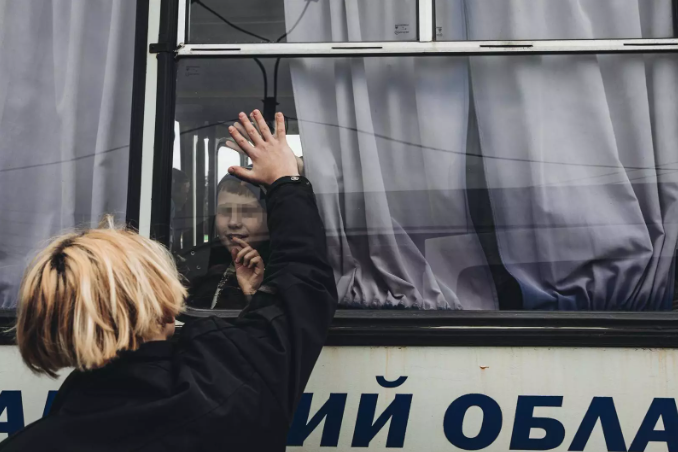After three months of an undeclared and unprovoked war by the Russian Federation against the people and government of Ukraine, it is becoming increasingly clear that a return to the positions of the belligerent forces before the outbreak of hostilities on February 24 would be a decisive step towards achieving a just and necessary peace in Eastern Europe. In contrast to other Russian military campaigns, such as those observed in Georgia, Crimea, or Syria, on this occasion, it is clear that there was no immediate overthrow and political-military surrender of the Kyiv government. Nor was there any “liberation” of the neighbor – with the possible exceptions of what was seen in certain territories of the eastern Donetsk and Lugansk provinces. In general, it is clear that Ukrainians have made a decisive and dramatic decision to fight for the sovereignty and independence of their country and to try to expel invading forces.
Obviously, the military campaign, in general, and the determination to resist foreign aggression, in particular, have represented very high human and material costs for both contenders. On the Ukrainian side, in the face of external military intervention and the pre-existing imbalance of forces, a fundamentally defensive strategy has been implemented. So far, this has made possible the expulsion of Russian units north of the capital and Kharkiv. Also, despite the recent fall of Mariupol, there has been a certain stabilization of the theaters of operations in the east and south of the country. Unfortunately, in the interlude, the defenders of their country have had to live with more than a few cases of atrocities and war crimes, the destruction of economic and social infrastructure, millions of displaced persons and refugees, and enormous psychological suffering, especially among non-combatants – women, infants, and elderly people. Likewise, according to credible sources, the Russian military campaign has resulted in financial costs in excess of $300 billion and the disruption of Ukraine’s economic system. In short, it has been a painful collective experience for an internationally recognized state.
In the midst of this bilateral Russian-Ukrainian conflict, there has been a vigorous reaction from the international community since February. Most state and non-state actors have spoken out in favor of international law and Kyiv’s claims. This has been quite clear in some decisions of the UN system. Conversely, there was skepticism and revulsion against the aggression pushed by the Moscow government and its closest allies and clients – including the government of Belarus and pro-Russian separatist forces. It is worth noting that, with few and sometimes paradoxical exceptions, this pattern of behavior and international identity essentially favorable to Ukraine has been replicated in most Latin American and Caribbean countries, as well as in the Global South.
In parallel, and perhaps as unintended or undesired consequences, the military campaign of the Russian armed forces has provoked reactions in many other capitals of the planet. This has included the offer of good offices by numerous international actors to seek a peaceful solution to the crisis. It is also possible to verify the virtual “definlandization” of Finland and Sweden, the rearmament of Germany and other countries, the recomposition of the North Atlantic Treaty Organization (NATO), and the growing Russian-American tensions. Likewise, it has been possible to note elective affinities and understanding towards the decision of Vladimir Putin’s government in Beijing, and the imposition of heavy economic sanctions – both commercial, financial, and communication – by Western countries on Russia. In addition, but not less important, the strong cultural and religious divergences between Slavic leaders, the interruption of the inter-civilizational dialogue, and a virtual suspension of international scientific, technical, and sports cooperation, mainly in relation to the aggressor forces, have been highlighted.
From the perspective of studies and research in international security and contemporary strategic issues, such events suggest the existence of a process of recomposition of the international system. From an academic point of view, the war in Ukraine has also had a significant impact on the evolution of the main theories of International Relations, such as neorealism, analytical liberalism, and constructivism, among others. Consequently, many analysts have come to affirm that this is one of the most important events since the September 11, 2001 attacks on the United States and subsequent events.
Seen from the perspective of Latin American countries as a whole, whose historical experience has not been lacking in cases of resistance and opposition to imperialist onslaughts fundamentally similar to those currently observed in Eastern Europe, a negotiated solution to the conflict would be ideal. That would be the task on which leaders of the UN, the Vatican, Turkey, Israel, and other countries, institutions, and agents with direct links and interests in the conflict have been working. Be that as it may, far from accepting a humiliating surrender and submission of Ukraine to Moscow’s designs, such negotiation should preserve the sovereignty, security, freedom, and territorial integrity of the parties. This being the case, unless better interpreted, a return to the status quo antebellum would be a decisive step in the resolution of this atrocious, outdated and spurious conflict.
An effort to address the ethnopolitical claims of pro-Russian groups could eventually be made by seeking to address demands for increased autonomy within the Ukrainian State. The Crimean issue could be resolved, for instance, through an exchange of territories – rather than the simple annexation of the peninsula and its exclusive economic zone to the Russian Federation. And equivalent, reciprocal, and mutually acceptable international security guarantees could be exchanged between the governments in question. It remains to be seen who will foot the bill for the massive and senseless destruction of the Ukrainian economy, for the enormous psychosocial suffering imposed on its population, and for the rearrangements generated in the regional and global international order.
Translated from Spanish by Janaína Ruviaro da Silva











